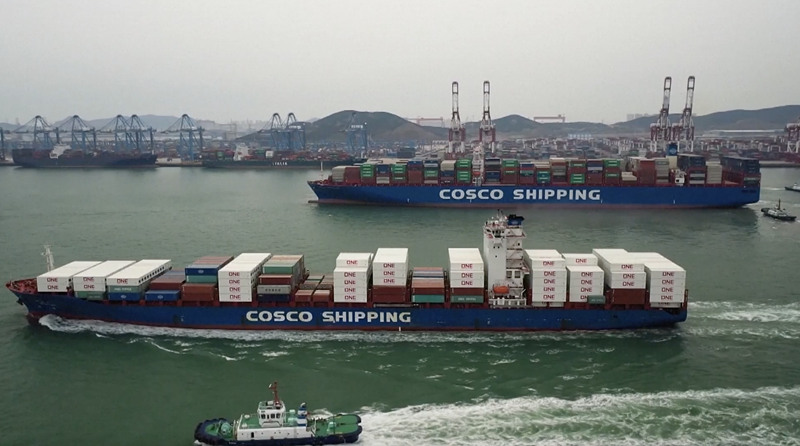As the global economy falters amid the capricious pandemic and soaring protectionism, the Regional Comprehensive Economic Partnership (RCEP) presents a precious boon for a world thirsty for a steady economic rebound.

File photo: CFP
The world's biggest trade pact, which has taken effect on Saturday in China and nine other countries, will bolster regional integration and aid a bumpy global recovery.
The 15 RCEP members are home to roughly 30 percent of the world's gross domestic product and population.
With a huge population, a diverse membership and a great potential, the implementation of the RCEP will effectively stabilize the regional supply and industrial chains, revitalize the regional market, and boost international trade and investment, thus creating new growth engines for the sluggish global economic recovery.
After the trade deal kicks in, more than 90 percent of merchandise trade between approved members will be eventually subject to zero tariffs.
Meanwhile, the RCEP will strongly offset the impact of raging protectionism and unilateralism, bringing free trade and multilateral cooperation back to the fore.
In recent years, unilateralism and protectionism have hindered the free flow of goods around the world, and created barriers against world economic growth.
By forming this mega free trade zone, RCEP members have demonstrated that win-win cooperation is still the shared pursuit of humankind. Decoupling and beggar-thy-neighbor practices are unable to reverse the trend of economic globalization.
As ASEAN Secretary-General Lim Jock Hoi said, the RCEP's expeditious ratification process by its various members is "a true reflection of our strong commitment to a fair and open multilateral trading system for the benefit of the people in the region and the world."
Furthermore, the RCEP is expected to facilitate the building of an open global economy and strengthen globalization.
Distinct from the West-dominated globalization practices, in which drawbacks including a widening development divide and deficient global governance abound, the RCEP features remarkable openness and inclusiveness, providing an inspiration for future efforts to enrich economic globalization.
The pact covers a wide range of areas such as tariff reductions, trade facilitation and the opening-up of services and investment, while taking into account the diverse development stages and economic needs of each member, developed or developing.
Last but not least, the RCEP will allow the region and the whole world to better share China's development opportunities. After signing the agreement in 2020, China took the lead in ratifying the deal. In November 2021, China announced it has made every preparation to enforce the RCEP domestically and ensure all obligations are met.
The success of the trade agreement rests on a faithful implementation. It is hoped that all parties can see the deal as an opportunity to lead the world out of its current state of distress and mark a shift towards a more open and inclusive global economy that can benefit everyone. Enditem


